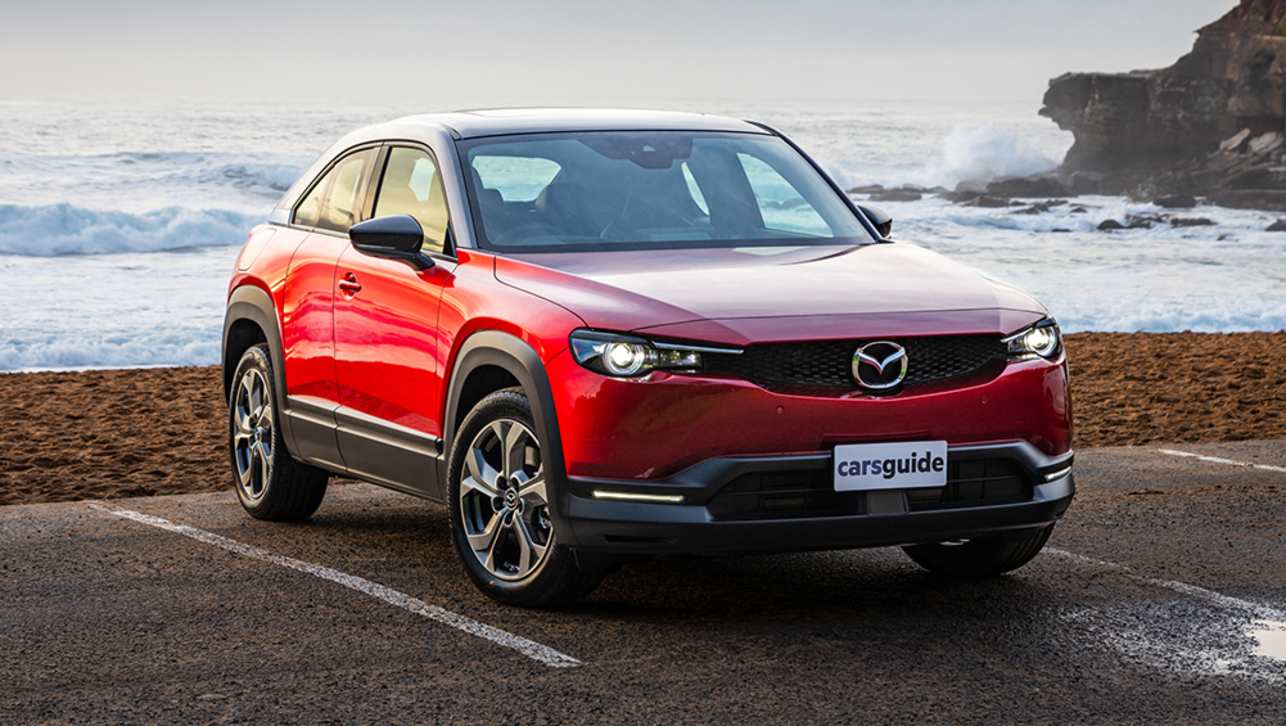Mazda is taking a 'wait and see' approach to electric cars as it studies the market, customer preferences and emerging technologies before it fully commits to more tailpipe emissions-free models.
Speaking to CarsGuide at this year's Japan Mobility Show, Mazda Motor Corporation Director of R&D, Ichiro Hirose, said the brand's next battery electric vehicle (BEV) won't surface into close to the end of the decade.
"Last year, we updated our mid-term plan and actually divided our plans to 2030 into three phases for electrification," he said.
"Up until 2025 is the first phase and up to 2027 is the second phase, and after 2028 is the third phase.
"The phase after 2028, we are going to have full-scale introduction of battery EVs.
"Up until then, we will prepare the technology, and from 2028 onwards, we will fully deploy EVs."
Up to this point, Mazda has released just one mass-market electric car in the form of the city-focused MX-30 EV, which has a 200km driving range.
Mazda Australia has since discontinued the slow-selling model, however, meaning it and Mitsubishi are the only top 10 brands without a clear timeline to offer an EV to rival the likes of Toyota's bZ4X, Hyundai's Ioniq 5, the Kia EV9, Ford's Mustang Mach-E and others.
.jpg)
However, Hirose is not concerned about falling behind in the EV race, as he believes the market is still finding its feet and jumping too soon could be catastrophic for a smaller brand like Mazda.
"We have no intention of being a pioneer or something in that world [EVs]," he said.
"Customer's choice and perception for battery EVs, we cannot predict that, so of course we prepare the technologies, until the time comes, we apply multiple solutions, and the basics for that is the engine we just introduced (the CX-60 and CX-90's inline six-cylinder petrol and diesel engines with mild-hybrid tech).
"Electric vehicle customer preferences, what are they? We cannot see it clearly yet.
"We will keep preparing for it and, once customer preferences become clear, then we will ready the product.
_0.jpg)
"Because after all, investment required for electric vehicles is going to be substantial, so we have to have a certain volume, otherwise it is going to be risky."
Hirose would not be drawn on what sort of shape Mazda's next EV will take, whether it will be a volume-selling mid-size SUV or a city runabout hatchback, but did confirm the brand is exclusively working in-house on electric cars and was not partnering with another brand to leverage external technologies.
Mazda has plans to completely electrify its line-up by 2030, though that might not necessarily mean battery electric technology.
The Japanese marque is toying with a rotary range-extending powertrain in the MX-30 in overseas markets, and has flagged alternative fuels like hydrogen as a viable pathway to reducing fleet emissions in the short-term future.




-2.jpg)


.jpg)

.jpg)
.jpg)




.jpg)
.jpg)


.jpg)


.jpg)



.jpg)


.jpg)


Comments